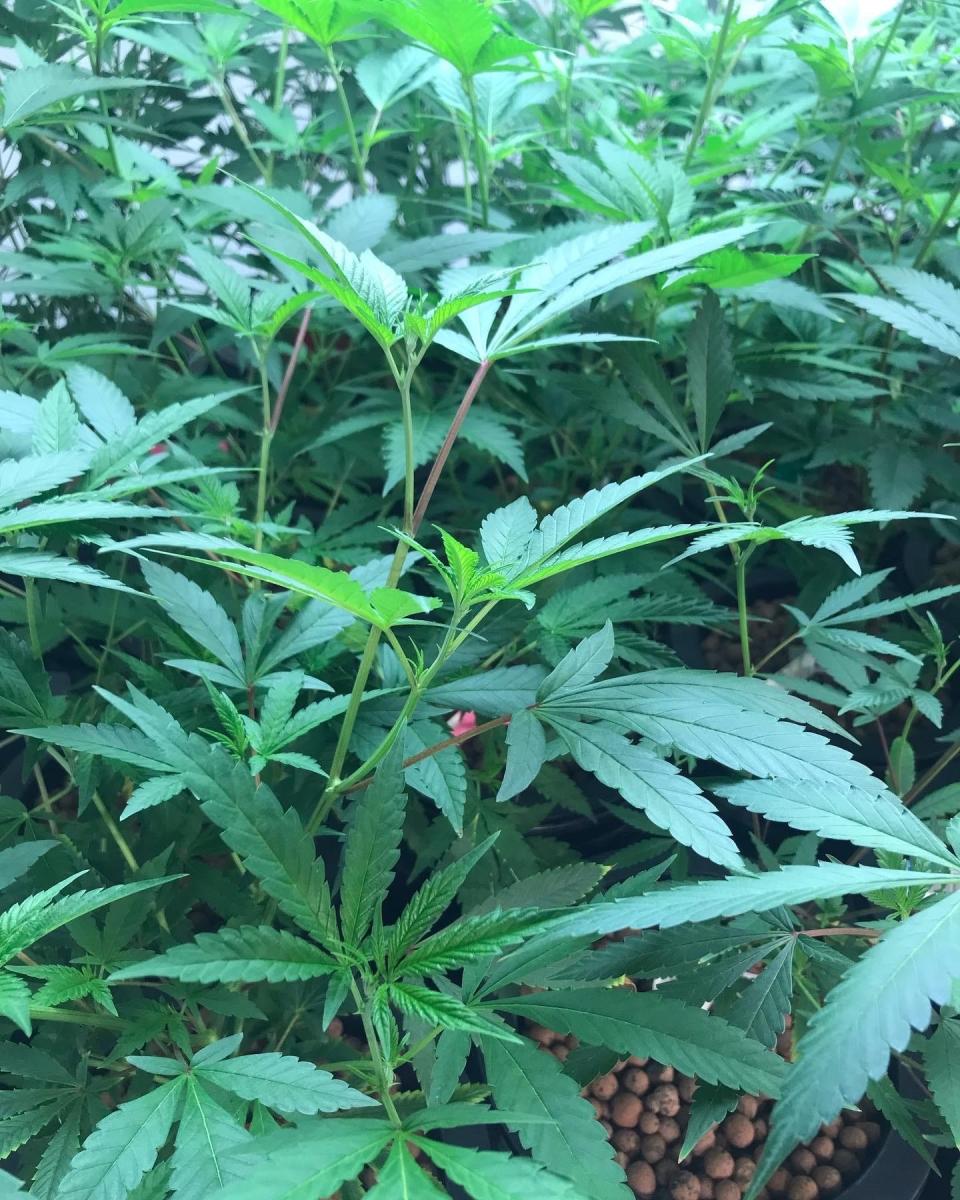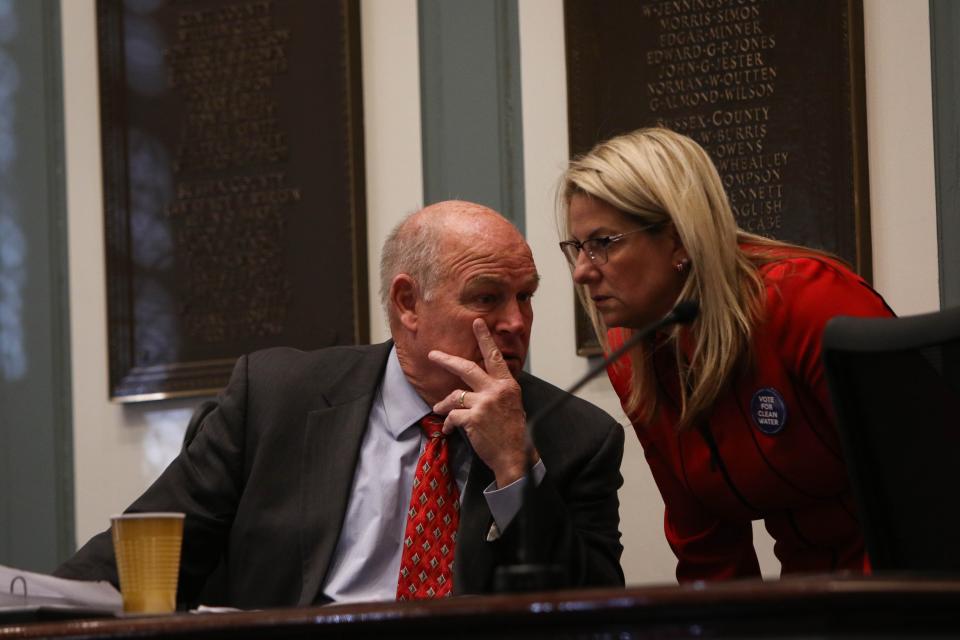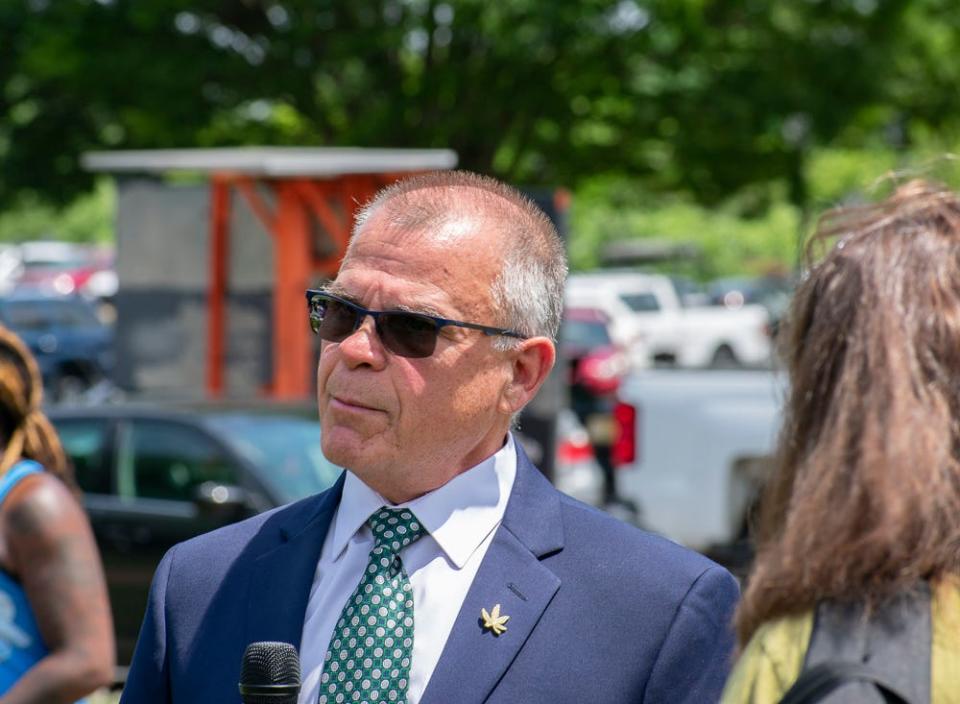7 things to know about the future of recreational marijuana in Delaware
Hawaii and Delaware don't share many qualities.
Hawaii far outranks us in surfers per capita. We have the edge in chickens and corporations.
But what the states do have in common is that they are the only solidly blue states that have not legalized recreational marijuana.
Twenty-one states have done so since 2012, including Delaware neighbors New Jersey, New York and Maryland. Of the 15 states in which Joe Biden won by at least 10 percentage points in 2020, only Delaware and Hawaii haven't legalized recreational marijuana. Three red states and three states considered "battlegrounds" have.

It hasn't been for a lack of trying.
Last year, both chambers of the Delaware Legislature passed a bill that would have legalized the possession of up to 1 ounce of marijuana by adults. But Gov. John Carney vetoed the bill. Efforts to overturn the veto failed.
Two bills are back before Delaware lawmakers this year that would legalize weed and create and regulate a recreational marijuana industry in Delaware. Both have taken steps toward approval in recent days.
Here's what you need to know about where Delaware's marijuana legislation stands.
When can I buy weed in Delaware?
This is what it comes down to for many onlookers.
The answer is, at best, unclear.
There's a chance legislation legalizing recreational marijuana in Delaware passes this legislative session, which ends June 30. If the legislation continues to be stymied by Carney, the best chance of it passing might not come until the end of his term in 2025. In that event, it could become an issue that guides the race for governor in 2024.
What needs to happen for Delaware to legalize recreational marijuana?
The legislation has to pass both chambers — the House of Representatives and Senate — of the Delaware General Assembly.
The governor then has to sign the bill into law. If the governor vetoes the bill, legislators can override the veto with a three-fifths majority vote in both chambers.
Legislators have decided to split the marijuana legislation into two separate bills: one to legalize small amounts of recreational marijuana for personal use and another to create and regulate the industry. The latter requires a three-fifths majority vote because it deals with revenue and taxation.

What happened with marijuana in Delaware last year?
A legalization bill similar to the one before lawmakers this year passed both chambers of the state Legislature but was vetoed by Carney.
House Democrats attempted to override Carney's veto, a maneuver that hadn't been attempted since 1990 and hasn't been successful since 1977. But the Democrats appeared well-positioned. The override vote needed 25 votes. When the initial legislation passed, 26 lawmakers supported it.
Three Democrats — Reps. Andria Bennett, William Carson and Sean Matthews — voted no on the veto vote, despite voting for the bill previously. Two Republicans, Reps. Jeff Spiegelman and Mike Ramone, did the same.
FAILED VETO OVERRIDE: Why Delaware lawmakers are hesitant to go against the governor
House Majority Leader Valerie Longhurst, who was a co-sponsor of the original bill, did not vote.
A separate bill to establish a recreational marijuana industry failed by one vote before making it to Carney.
The recent history sets up two questions for this year.
If it arrives at his desk, will Carney again veto the marijuana legislation? If Carney vetoes the bills, do lawmakers have the political will to override the governor?

What has happened so far in 2023?
House lawmakers passed the legalization bill in a bipartisan 28-13 vote.
The legislation picked up two Democratic lawmakers — Reps. Bill Bush and Stephanie T. Bolden — who had not previously supported legalization.
For the first time, the House passed a bill to establish a recreational marijuana industry. All Democrats and two Republicans voted in favor of the legislation to form a three-fifths majority.
THE VOTE: Delaware House votes yes to create recreational marijuana industry with bipartisan support
House Speaker Pete Schwartzkopf, a vocal opponent, voted against the legalization bill and in favor of the industry bill.
Both bills now head to the Senate.

What is in Delaware's marijuana legislation?
The legalization bill: House Bill 1 would remove all penalties for possessing 1 ounce or less of leaf marijuana for those ages 21 and older. This legislation would require a simple majority or 21 votes. As of now, marijuana is decriminalized in Delaware.
The industry bill: House Bill 2 would create a framework to regulate the growth, sale and possession of weed. Lawmakers say marijuana would be regulated and taxed the same way alcohol is. Delawareans would buy marijuana from a licensed retail marijuana store. The bill would allow for up to 30 retail licenses to be distributed within 16 months of the legislation going into effect. This legislation requires a three-fifths vote because it deals with revenue and taxation.
What has changed since last year? Why would 2023 be any different?
"We have some new members; we have some new energy," said Rep. Ed Osienski, D-Newark/Brookside, who has sponsored the legislation. "And I think a lot of (lawmakers) realize that I'm just not going to let this go."
Osienski was referring to the wave of progressives that won House seats last fall. At the start of the session, Osienski said he had talked to lawmakers on the fence and believed New Jersey setting up its industry — and raking in hundreds of millions of dollars — helped alleviate concerns.
Osienski met with Carney's staff to “have an open dialogue,” which didn’t happen last session.
"My hope is that with continued open dialogue with the governor's office, that will help alleviate a veto," he said. "I have more support from my members … for a veto override, but I'm hoping it doesn't come to that."

Why is Carney against recreational marijuana?
At each turn in the quest to legalize recreational marijuana in Delaware, Carney's staff has reiterated that the governor has not changed his stance.
"I recognize the positive effect marijuana can have for people with certain health conditions, and for that reason, I continue to support the medical marijuana industry in Delaware," Carney said when he vetoed last year's legalization bill. “I supported decriminalization of marijuana because I agree that individuals should not be imprisoned solely for the possession and private use of a small amount of marijuana — and today, thanks to Delaware’s decriminalization law, they are not."
"That said, I do not believe that promoting or expanding the use of recreational marijuana is in the best interests of the state of Delaware, especially our young people. Questions about the long-term health and economic impacts of recreational marijuana use, as well as serious law enforcement concerns, remain unresolved."
Contact Brandon Holveck at bholveck@delawareonline.com. Follow him on Twitter @holveck_brandon.
This article originally appeared on Delaware News Journal: Delaware marijuana: What you need to know about future of legal weed

